Is Josh Kaul's DOJ Abusing the Use of a Powerful Investigative Tool to Take Down a Wisconsin Business Owner?
Is AG Josh Kaul using his power to harass an immigrant-owned business for his own political gain?
One of southeastern Wisconsin's largest landlords is accusing Attorney General Josh Kaul and a Tony Evers' appointee of engaging in an “unconstitutional” and harassing fishing expedition against an immigrant-owned Milwaukee-area business that says it is fighting against gentrification by offering affordable housing to help Milwaukeeans.
In essence, Berrada Properties Management, Inc. argues the government used COVID-19 policies and a couple anonymous complaints to launch a wide-ranging, endless investigation into almost every corner of the business without grounds or proper foundation. They say it's a premise that should terrify every business owner.
The massive probe started because of a few anonymous complaints that Berrada was violating Evers' Safer at Home order on COVID-19 by replacing 55-year-old windows in apartments, which the government considered an illegal violation of COVID rules. From there, the investigation spawned into almost every aspect of the company.
 Berrada Properties Management, Inc., and Youssef Berrada, its owner, filed the lawsuit in federal court in the Eastern District of Wisconsin against Kaul and Randy Romanski, head of the Wisconsin Department of Agriculture, Trade and Consumer Protection, and an Evers' appointee. Representing Berrada is Reinhart Boerner Van Deuren s.c. The case has been pending since 2021, but it's worth scrutinizing now that Kaul is running for re-election as Attorney General. The company also sued Kaul and Romanski in Ozaukee County Circuit Court alleging similar grounds; the Ozaukee case was moved to federal court.
Kaul and Evers' administrator have their side, which they have articulated aggressively in the news media and in court filings.
In contrast, Berrada has run up against a liberal media that focuses far more on tenants' rights than landlords' rights or the practical concerns they face when tenants simply refuse to pay, especially after two years of a pandemic. Very few stories have thoroughly given Berrada's side, nor have they explained the details of his lawsuits or the fact that Kaul went after him most aggressively after Berrada sued the attorney general (and Evers' administration) to stop what Berrada considers an unconstitutional witchhunt into nearly every aspect of the business without proper foundation to do so. The liberal media's stories have been almost all tilted toward giving Kaul's side without fully exploring Berrada's.
We explain that side thoroughly here.
Kaul's DOJ is taking aim at BPM’s eviction process and has filed a case against the company that appears to be nothing more than a fishing expedition by issuing "Civil Investigative Demands." These are called CIDs, the company's supporters say.
They are the powerful tool that is giving DOJ and DATCP such unfettered power.
Berrada Properties Management, Inc., and Youssef Berrada, its owner, filed the lawsuit in federal court in the Eastern District of Wisconsin against Kaul and Randy Romanski, head of the Wisconsin Department of Agriculture, Trade and Consumer Protection, and an Evers' appointee. Representing Berrada is Reinhart Boerner Van Deuren s.c. The case has been pending since 2021, but it's worth scrutinizing now that Kaul is running for re-election as Attorney General. The company also sued Kaul and Romanski in Ozaukee County Circuit Court alleging similar grounds; the Ozaukee case was moved to federal court.
Kaul and Evers' administrator have their side, which they have articulated aggressively in the news media and in court filings.
In contrast, Berrada has run up against a liberal media that focuses far more on tenants' rights than landlords' rights or the practical concerns they face when tenants simply refuse to pay, especially after two years of a pandemic. Very few stories have thoroughly given Berrada's side, nor have they explained the details of his lawsuits or the fact that Kaul went after him most aggressively after Berrada sued the attorney general (and Evers' administration) to stop what Berrada considers an unconstitutional witchhunt into nearly every aspect of the business without proper foundation to do so. The liberal media's stories have been almost all tilted toward giving Kaul's side without fully exploring Berrada's.
We explain that side thoroughly here.
Kaul's DOJ is taking aim at BPM’s eviction process and has filed a case against the company that appears to be nothing more than a fishing expedition by issuing "Civil Investigative Demands." These are called CIDs, the company's supporters say.
They are the powerful tool that is giving DOJ and DATCP such unfettered power.
 What has not been widely reported, is that Berrada Properties Management (BPM) filed the lawsuit against the Wisconsin Department of Agriculture, Trade and Consumer Protection (DATCP) and DOJ well over a year ago. That case has still not come to a resolution.
Was the DOJ case that was filed against BPM done in retaliation for the case brought against DATCP and DOJ? Some think so.
The Milwaukee Journal Sentinel has been writing investigative pieces trashing Berrada since at least 2018. One newspaper article quoted a Legal Aid Society representative as calling it "gross" that the company was responsible for a large percentage of evictions in Milwaukee - even though Berrada is one of the largest landlords in Milwaukee. Fox 6 reported that Berrada was behind a surge in evictions in February 2022; the company said it needed to start evicting the tenants who owed the most money because it's owed millions in outstanding rental payments.
“We have a lot people unresponsive, meaning, we have tried sending [certified] letters, emails, text messages, knocking on their door…no response,” Berrada told WTMJ of the evictions.
He added: "This is the very, very last resort. We had to do it. We could not continue to do business like that…It’s people that owe us, 10, 12, $15,000 with no response…We had to cut the ties.”
A few months later, after Berrada sued Kaul and Evers' administration alleging unconstitutional and unfounded harassment, Kaul generated big headlines against the business in the Milwaukee Journal Sentinel and other local media by filing a massive lawsuit against it. Kaul alleged that Berrada's rental agreements had "illegal provisions" such as making tenants pay attorney fees for evictions. Berrada "vehemently" denied the allegations. The case has a motion hearing coming up March 18, 2022, in Milwaukee County.
The civil enforcement complaint filed by Kaul made a series of accusations of unfair billing practices and other things against Berrada that the company denies; among them, claiming it conducted "renovation projects in a negligent manner" causing pest infestation.
What has not been widely reported, is that Berrada Properties Management (BPM) filed the lawsuit against the Wisconsin Department of Agriculture, Trade and Consumer Protection (DATCP) and DOJ well over a year ago. That case has still not come to a resolution.
Was the DOJ case that was filed against BPM done in retaliation for the case brought against DATCP and DOJ? Some think so.
The Milwaukee Journal Sentinel has been writing investigative pieces trashing Berrada since at least 2018. One newspaper article quoted a Legal Aid Society representative as calling it "gross" that the company was responsible for a large percentage of evictions in Milwaukee - even though Berrada is one of the largest landlords in Milwaukee. Fox 6 reported that Berrada was behind a surge in evictions in February 2022; the company said it needed to start evicting the tenants who owed the most money because it's owed millions in outstanding rental payments.
“We have a lot people unresponsive, meaning, we have tried sending [certified] letters, emails, text messages, knocking on their door…no response,” Berrada told WTMJ of the evictions.
He added: "This is the very, very last resort. We had to do it. We could not continue to do business like that…It’s people that owe us, 10, 12, $15,000 with no response…We had to cut the ties.”
A few months later, after Berrada sued Kaul and Evers' administration alleging unconstitutional and unfounded harassment, Kaul generated big headlines against the business in the Milwaukee Journal Sentinel and other local media by filing a massive lawsuit against it. Kaul alleged that Berrada's rental agreements had "illegal provisions" such as making tenants pay attorney fees for evictions. Berrada "vehemently" denied the allegations. The case has a motion hearing coming up March 18, 2022, in Milwaukee County.
The civil enforcement complaint filed by Kaul made a series of accusations of unfair billing practices and other things against Berrada that the company denies; among them, claiming it conducted "renovation projects in a negligent manner" causing pest infestation.
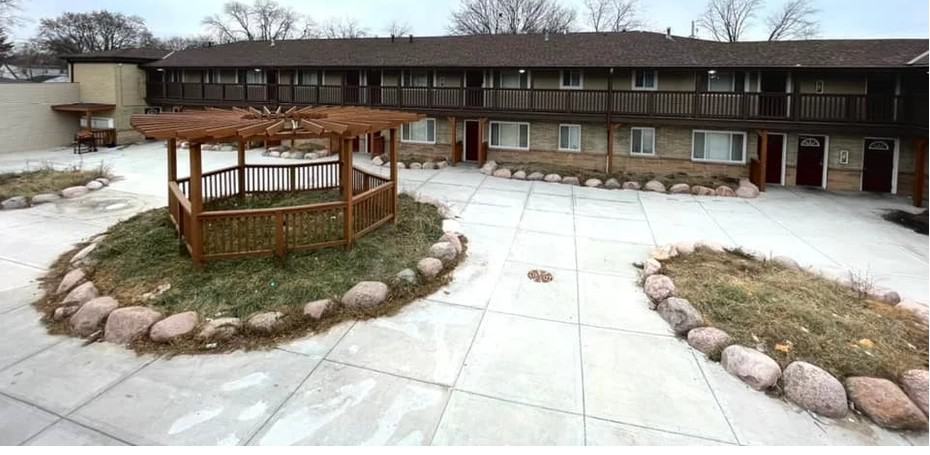 Berrada responded that it believed the window replacement was necessary and permitted under Safer at Home orders, noting that some of the windows were almost 55 years old, were generating tenant complaints, and had caused structural damage and active leaks.
Soon thereafter, Berrada received the first extremely broad legal demand for information about its business, a CID.
Since then, Berrada and its supporters say, the Evers' and Kaul administrations have continued to up the ante on the business, demanding endless details about the business and its tenants. They say Kaul's DOJ overreach could potentially impact each and every privately owned business in the state of Wisconsin if such wide-ranging tactics are allowed and that CIDS are ripe for abuse by the government.
In court filings, Kaul has countered that the government does not need to establish probable cause before an investigation is complete, denied that a constitutional violation occurred, and argued that the CIDs "were consistent with the authority, purpose, and scope
of DATCP’s investigation and duty to protect the public interest."
In October 2020, Berrada’s lawyers sent Kaul a letter saying they still could not determine the “basis for this investigation” other than the anonymous COVID complaints. The letter alleged that Kaul and Romanski's agency based their investigation on newspaper articles.
The company denied being a “bully to tenants” and said that it regularly works with tenants who default on their rent but noted that Berrada has a “legal right to evict non-paying tenants and must do so in order to stay in business.”
Berrada responded that it believed the window replacement was necessary and permitted under Safer at Home orders, noting that some of the windows were almost 55 years old, were generating tenant complaints, and had caused structural damage and active leaks.
Soon thereafter, Berrada received the first extremely broad legal demand for information about its business, a CID.
Since then, Berrada and its supporters say, the Evers' and Kaul administrations have continued to up the ante on the business, demanding endless details about the business and its tenants. They say Kaul's DOJ overreach could potentially impact each and every privately owned business in the state of Wisconsin if such wide-ranging tactics are allowed and that CIDS are ripe for abuse by the government.
In court filings, Kaul has countered that the government does not need to establish probable cause before an investigation is complete, denied that a constitutional violation occurred, and argued that the CIDs "were consistent with the authority, purpose, and scope
of DATCP’s investigation and duty to protect the public interest."
In October 2020, Berrada’s lawyers sent Kaul a letter saying they still could not determine the “basis for this investigation” other than the anonymous COVID complaints. The letter alleged that Kaul and Romanski's agency based their investigation on newspaper articles.
The company denied being a “bully to tenants” and said that it regularly works with tenants who default on their rent but noted that Berrada has a “legal right to evict non-paying tenants and must do so in order to stay in business.”
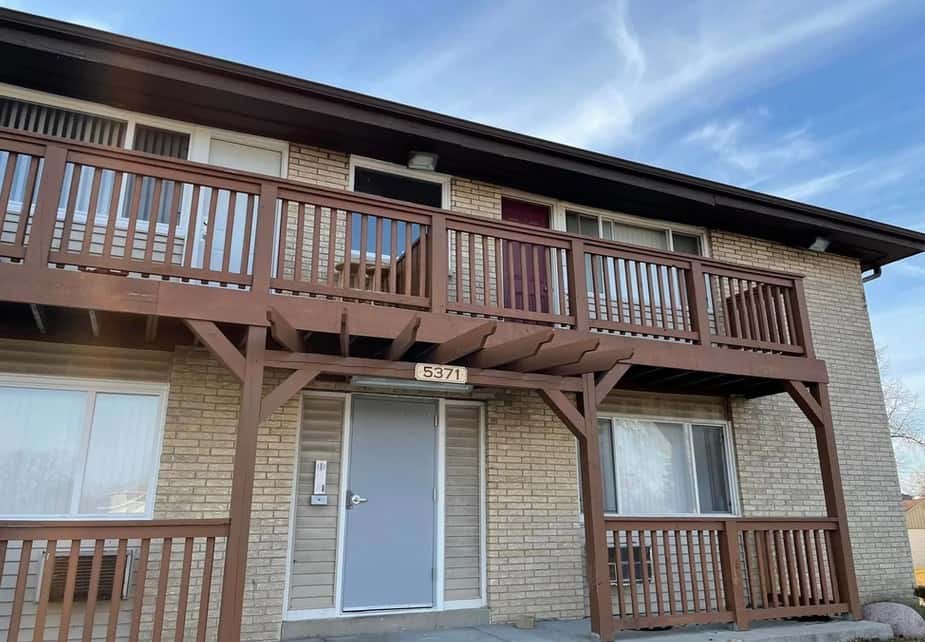 The attorney general’s office responded that complaints were just a part of the “impetus for the investigation… the conduct of our investigation and its scope are based on many sources of information,“ but did not say what they were.
Kaul's DOJ and Evers' DATCP are falsely smearing a private business doing the hard work of creating affordable housing in Milwaukee, Berrada's supporters claim.
The lawsuit alleges that Kaul and Romanski and their agencies:
The attorney general’s office responded that complaints were just a part of the “impetus for the investigation… the conduct of our investigation and its scope are based on many sources of information,“ but did not say what they were.
Kaul's DOJ and Evers' DATCP are falsely smearing a private business doing the hard work of creating affordable housing in Milwaukee, Berrada's supporters claim.
The lawsuit alleges that Kaul and Romanski and their agencies:
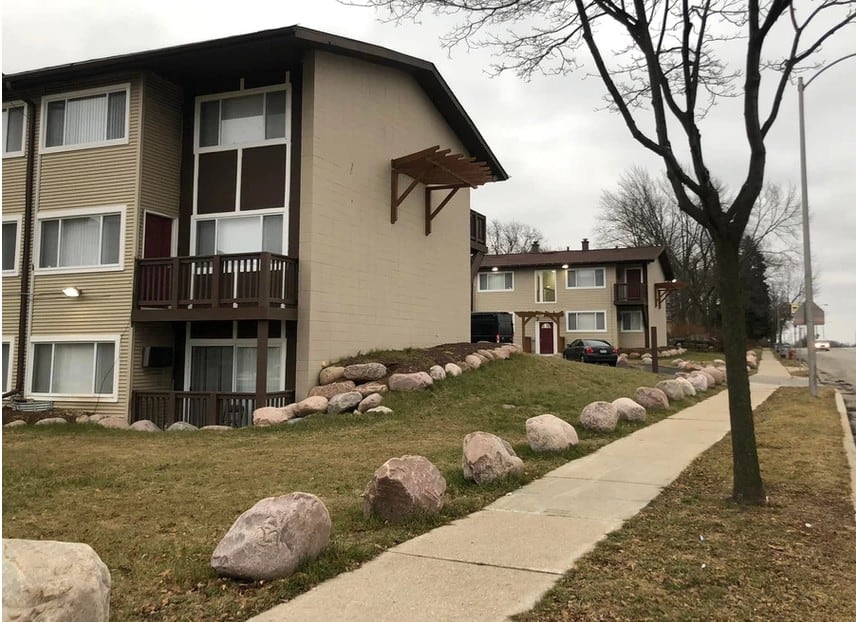 Berrada's business model is acquiring properties that were poorly managed and in a state of significant disrepair, the lawsuit says, then he undertakes “significant improvements” and upgrades the properties. Berrada is trying to “maintain a volume of low-income housing,” rather than gentrifying the buildings, the suit says. He tries to rent them out at similar rates before the repair.
Berrada says in the lawsuit that his company tries to work with existing tenants when it buys properties, even giving them a free month of rent. They say their evictions are low - only 0.2% of their rental units.
Berrada's business model is acquiring properties that were poorly managed and in a state of significant disrepair, the lawsuit says, then he undertakes “significant improvements” and upgrades the properties. Berrada is trying to “maintain a volume of low-income housing,” rather than gentrifying the buildings, the suit says. He tries to rent them out at similar rates before the repair.
Berrada says in the lawsuit that his company tries to work with existing tenants when it buys properties, even giving them a free month of rent. They say their evictions are low - only 0.2% of their rental units.
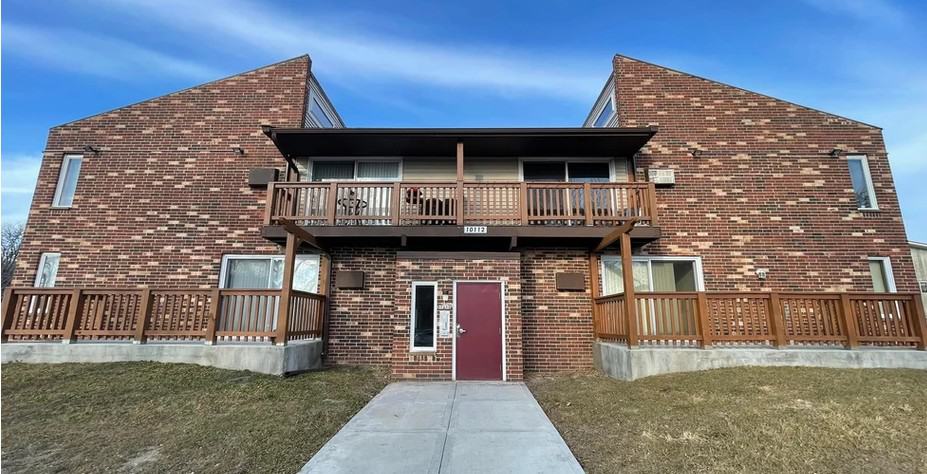 DATCP then accused Berrada of violating the Safer at Home orders. They wanted Berrada to explain that “unreasonable and non-emergency entries” to rental properties would not occur during the “public health emergency.” The suit says DATCP does not have authority to enforce the Safer at Home Orders.
Berrada responded anyway and said that it only entered apartments for emergency maintenance and with the express permission of tenants.
Nonetheless, that’s when DATCP served Berrada with its first “Civil Investigative Demand.”
The government demanded “detailed information on every rental property owned, purchased or pending purchase by Mr. Berrada and detailed information on business entities owned or controlled by Mr. Berrada,” the suit says.
The demand was extremely broad. The Evers’ administration wanted many things from Berrada including its business structure, employees, late fee payments, transferred leases, information on 100 former tenants, most of whom were evicted, a description of internal accounting and much more.
A second CID was then sent. Berrada then sent voluminous information related to 229 property purchases and more to the government.
Yet on July 23, 2020, Kaul’s Department of Justice sent 15 additional detailed questions to Berrada as a supplement to the CIDs.
Berrada gave more information to the government, including information on its employees, property transactions, notices to tenants, and more.
DATCP then accused Berrada of violating the Safer at Home orders. They wanted Berrada to explain that “unreasonable and non-emergency entries” to rental properties would not occur during the “public health emergency.” The suit says DATCP does not have authority to enforce the Safer at Home Orders.
Berrada responded anyway and said that it only entered apartments for emergency maintenance and with the express permission of tenants.
Nonetheless, that’s when DATCP served Berrada with its first “Civil Investigative Demand.”
The government demanded “detailed information on every rental property owned, purchased or pending purchase by Mr. Berrada and detailed information on business entities owned or controlled by Mr. Berrada,” the suit says.
The demand was extremely broad. The Evers’ administration wanted many things from Berrada including its business structure, employees, late fee payments, transferred leases, information on 100 former tenants, most of whom were evicted, a description of internal accounting and much more.
A second CID was then sent. Berrada then sent voluminous information related to 229 property purchases and more to the government.
Yet on July 23, 2020, Kaul’s Department of Justice sent 15 additional detailed questions to Berrada as a supplement to the CIDs.
Berrada gave more information to the government, including information on its employees, property transactions, notices to tenants, and more.
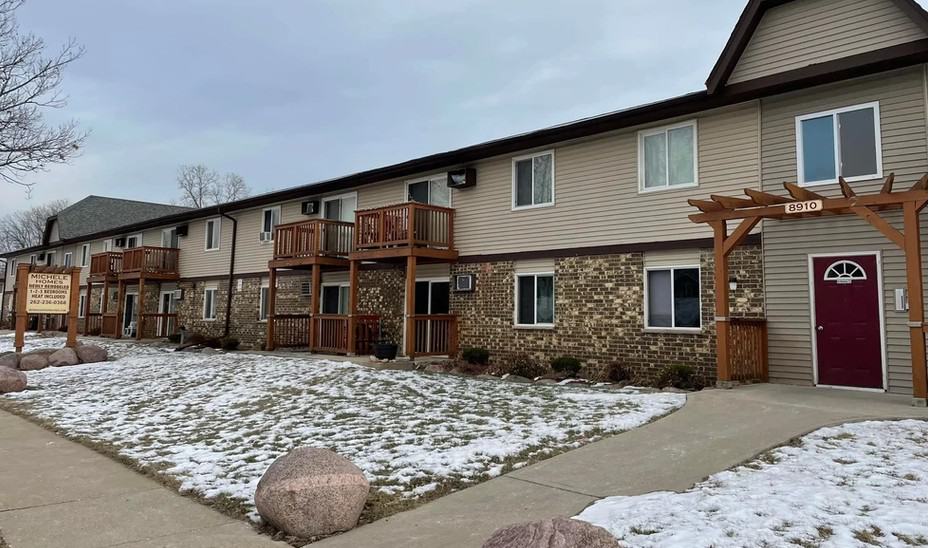 But DOJ and DATCP then demanded yet more information. Now they wanted communications, business documents, and more.
Due to COVID hardships, Berrada then returned over $1 million in late fees that Kaul and DATCP asserted were improperly collected based on their “interpretation” of statutory and rule provisions.
But even then, Kaul and Romanski persisted.
The governmental officials still would not provide a basis for the scope of the investigation, which accuses them of using articles in the Milwaukee Journal Sentinel as a partial basis for their investigation and demanding an opportunity “to edit and approve business documents," the lawsuit alleges.
Berrada claims that the Milwaukee Journal Sentinel has run “unfair” articles. The lawsuit says the articles have trashed Berrada personally, even including a drone fly-over video of his home, details of his racial heritage and his “past relationships” while insinuating he violated the Safer at Home order and has “aggressive dealings” with tenants.
But DOJ and DATCP then demanded yet more information. Now they wanted communications, business documents, and more.
Due to COVID hardships, Berrada then returned over $1 million in late fees that Kaul and DATCP asserted were improperly collected based on their “interpretation” of statutory and rule provisions.
But even then, Kaul and Romanski persisted.
The governmental officials still would not provide a basis for the scope of the investigation, which accuses them of using articles in the Milwaukee Journal Sentinel as a partial basis for their investigation and demanding an opportunity “to edit and approve business documents," the lawsuit alleges.
Berrada claims that the Milwaukee Journal Sentinel has run “unfair” articles. The lawsuit says the articles have trashed Berrada personally, even including a drone fly-over video of his home, details of his racial heritage and his “past relationships” while insinuating he violated the Safer at Home order and has “aggressive dealings” with tenants.
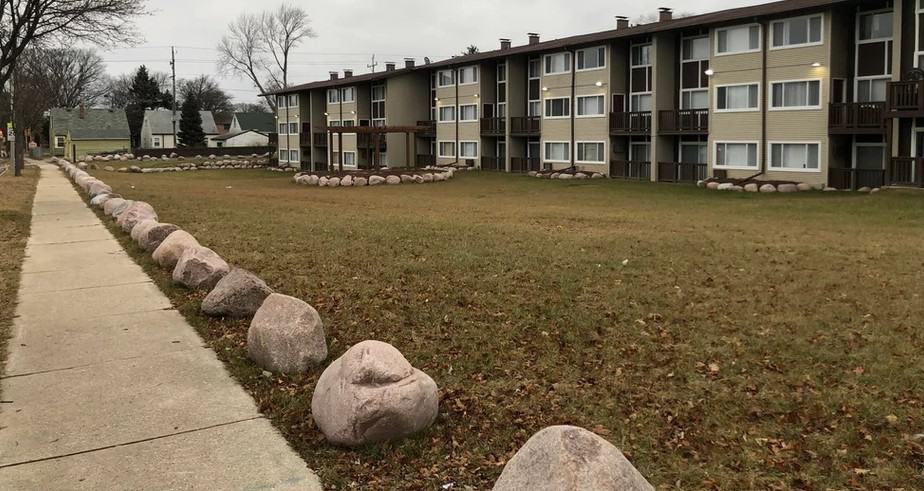 They cited an anonymous complaint that Berrada was telling tenants of a property it did not yet own that they would be forced to vacate their homes in 30 days.
They alleged a state statute violation but did not include details. Kaul and Romanski then demanded Berrada send a letter to the tenants of the building it did not own explaining they would not be forced to vacate or the state would do so, the suit says.
Berrada claims that Kaul and Romanski sent a CID to a business acquaintance of Berrada demanding information about properties sold to it.
They denied Berrada access to the CIDs sent to others in connection to the investigation. Berrada tried to file an open records request but most of it was not provided. DOJ said there were over 8,000 emails and over 78,000 documents over two years relating to Berrada, the Milwaukee Journal Sentinel and its reporter.
They cited an anonymous complaint that Berrada was telling tenants of a property it did not yet own that they would be forced to vacate their homes in 30 days.
They alleged a state statute violation but did not include details. Kaul and Romanski then demanded Berrada send a letter to the tenants of the building it did not own explaining they would not be forced to vacate or the state would do so, the suit says.
Berrada claims that Kaul and Romanski sent a CID to a business acquaintance of Berrada demanding information about properties sold to it.
They denied Berrada access to the CIDs sent to others in connection to the investigation. Berrada tried to file an open records request but most of it was not provided. DOJ said there were over 8,000 emails and over 78,000 documents over two years relating to Berrada, the Milwaukee Journal Sentinel and its reporter.
 Berrada Properties Management, Inc., and Youssef Berrada, its owner, filed the lawsuit in federal court in the Eastern District of Wisconsin against Kaul and Randy Romanski, head of the Wisconsin Department of Agriculture, Trade and Consumer Protection, and an Evers' appointee. Representing Berrada is Reinhart Boerner Van Deuren s.c. The case has been pending since 2021, but it's worth scrutinizing now that Kaul is running for re-election as Attorney General. The company also sued Kaul and Romanski in Ozaukee County Circuit Court alleging similar grounds; the Ozaukee case was moved to federal court.
Kaul and Evers' administrator have their side, which they have articulated aggressively in the news media and in court filings.
In contrast, Berrada has run up against a liberal media that focuses far more on tenants' rights than landlords' rights or the practical concerns they face when tenants simply refuse to pay, especially after two years of a pandemic. Very few stories have thoroughly given Berrada's side, nor have they explained the details of his lawsuits or the fact that Kaul went after him most aggressively after Berrada sued the attorney general (and Evers' administration) to stop what Berrada considers an unconstitutional witchhunt into nearly every aspect of the business without proper foundation to do so. The liberal media's stories have been almost all tilted toward giving Kaul's side without fully exploring Berrada's.
We explain that side thoroughly here.
Kaul's DOJ is taking aim at BPM’s eviction process and has filed a case against the company that appears to be nothing more than a fishing expedition by issuing "Civil Investigative Demands." These are called CIDs, the company's supporters say.
They are the powerful tool that is giving DOJ and DATCP such unfettered power.
Berrada Properties Management, Inc., and Youssef Berrada, its owner, filed the lawsuit in federal court in the Eastern District of Wisconsin against Kaul and Randy Romanski, head of the Wisconsin Department of Agriculture, Trade and Consumer Protection, and an Evers' appointee. Representing Berrada is Reinhart Boerner Van Deuren s.c. The case has been pending since 2021, but it's worth scrutinizing now that Kaul is running for re-election as Attorney General. The company also sued Kaul and Romanski in Ozaukee County Circuit Court alleging similar grounds; the Ozaukee case was moved to federal court.
Kaul and Evers' administrator have their side, which they have articulated aggressively in the news media and in court filings.
In contrast, Berrada has run up against a liberal media that focuses far more on tenants' rights than landlords' rights or the practical concerns they face when tenants simply refuse to pay, especially after two years of a pandemic. Very few stories have thoroughly given Berrada's side, nor have they explained the details of his lawsuits or the fact that Kaul went after him most aggressively after Berrada sued the attorney general (and Evers' administration) to stop what Berrada considers an unconstitutional witchhunt into nearly every aspect of the business without proper foundation to do so. The liberal media's stories have been almost all tilted toward giving Kaul's side without fully exploring Berrada's.
We explain that side thoroughly here.
Kaul's DOJ is taking aim at BPM’s eviction process and has filed a case against the company that appears to be nothing more than a fishing expedition by issuing "Civil Investigative Demands." These are called CIDs, the company's supporters say.
They are the powerful tool that is giving DOJ and DATCP such unfettered power.
 What has not been widely reported, is that Berrada Properties Management (BPM) filed the lawsuit against the Wisconsin Department of Agriculture, Trade and Consumer Protection (DATCP) and DOJ well over a year ago. That case has still not come to a resolution.
Was the DOJ case that was filed against BPM done in retaliation for the case brought against DATCP and DOJ? Some think so.
The Milwaukee Journal Sentinel has been writing investigative pieces trashing Berrada since at least 2018. One newspaper article quoted a Legal Aid Society representative as calling it "gross" that the company was responsible for a large percentage of evictions in Milwaukee - even though Berrada is one of the largest landlords in Milwaukee. Fox 6 reported that Berrada was behind a surge in evictions in February 2022; the company said it needed to start evicting the tenants who owed the most money because it's owed millions in outstanding rental payments.
“We have a lot people unresponsive, meaning, we have tried sending [certified] letters, emails, text messages, knocking on their door…no response,” Berrada told WTMJ of the evictions.
He added: "This is the very, very last resort. We had to do it. We could not continue to do business like that…It’s people that owe us, 10, 12, $15,000 with no response…We had to cut the ties.”
A few months later, after Berrada sued Kaul and Evers' administration alleging unconstitutional and unfounded harassment, Kaul generated big headlines against the business in the Milwaukee Journal Sentinel and other local media by filing a massive lawsuit against it. Kaul alleged that Berrada's rental agreements had "illegal provisions" such as making tenants pay attorney fees for evictions. Berrada "vehemently" denied the allegations. The case has a motion hearing coming up March 18, 2022, in Milwaukee County.
The civil enforcement complaint filed by Kaul made a series of accusations of unfair billing practices and other things against Berrada that the company denies; among them, claiming it conducted "renovation projects in a negligent manner" causing pest infestation.
What has not been widely reported, is that Berrada Properties Management (BPM) filed the lawsuit against the Wisconsin Department of Agriculture, Trade and Consumer Protection (DATCP) and DOJ well over a year ago. That case has still not come to a resolution.
Was the DOJ case that was filed against BPM done in retaliation for the case brought against DATCP and DOJ? Some think so.
The Milwaukee Journal Sentinel has been writing investigative pieces trashing Berrada since at least 2018. One newspaper article quoted a Legal Aid Society representative as calling it "gross" that the company was responsible for a large percentage of evictions in Milwaukee - even though Berrada is one of the largest landlords in Milwaukee. Fox 6 reported that Berrada was behind a surge in evictions in February 2022; the company said it needed to start evicting the tenants who owed the most money because it's owed millions in outstanding rental payments.
“We have a lot people unresponsive, meaning, we have tried sending [certified] letters, emails, text messages, knocking on their door…no response,” Berrada told WTMJ of the evictions.
He added: "This is the very, very last resort. We had to do it. We could not continue to do business like that…It’s people that owe us, 10, 12, $15,000 with no response…We had to cut the ties.”
A few months later, after Berrada sued Kaul and Evers' administration alleging unconstitutional and unfounded harassment, Kaul generated big headlines against the business in the Milwaukee Journal Sentinel and other local media by filing a massive lawsuit against it. Kaul alleged that Berrada's rental agreements had "illegal provisions" such as making tenants pay attorney fees for evictions. Berrada "vehemently" denied the allegations. The case has a motion hearing coming up March 18, 2022, in Milwaukee County.
The civil enforcement complaint filed by Kaul made a series of accusations of unfair billing practices and other things against Berrada that the company denies; among them, claiming it conducted "renovation projects in a negligent manner" causing pest infestation.
The investigation starts with COVID complaints
It all started with COVID. An April 29, 2020 letter from Romanski's agency scolded Berrada, saying the state had received three complaints that Berrada maintenance workers were “entering apartments to replace windows and doors” when the COVID emergency order only allowed emergency maintenance. The state wrote that it considered this an “illegal entry," warning that it could result in criminal prosecution. Berrada responded that it believed the window replacement was necessary and permitted under Safer at Home orders, noting that some of the windows were almost 55 years old, were generating tenant complaints, and had caused structural damage and active leaks.
Soon thereafter, Berrada received the first extremely broad legal demand for information about its business, a CID.
Since then, Berrada and its supporters say, the Evers' and Kaul administrations have continued to up the ante on the business, demanding endless details about the business and its tenants. They say Kaul's DOJ overreach could potentially impact each and every privately owned business in the state of Wisconsin if such wide-ranging tactics are allowed and that CIDS are ripe for abuse by the government.
In court filings, Kaul has countered that the government does not need to establish probable cause before an investigation is complete, denied that a constitutional violation occurred, and argued that the CIDs "were consistent with the authority, purpose, and scope
of DATCP’s investigation and duty to protect the public interest."
In October 2020, Berrada’s lawyers sent Kaul a letter saying they still could not determine the “basis for this investigation” other than the anonymous COVID complaints. The letter alleged that Kaul and Romanski's agency based their investigation on newspaper articles.
The company denied being a “bully to tenants” and said that it regularly works with tenants who default on their rent but noted that Berrada has a “legal right to evict non-paying tenants and must do so in order to stay in business.”
Berrada responded that it believed the window replacement was necessary and permitted under Safer at Home orders, noting that some of the windows were almost 55 years old, were generating tenant complaints, and had caused structural damage and active leaks.
Soon thereafter, Berrada received the first extremely broad legal demand for information about its business, a CID.
Since then, Berrada and its supporters say, the Evers' and Kaul administrations have continued to up the ante on the business, demanding endless details about the business and its tenants. They say Kaul's DOJ overreach could potentially impact each and every privately owned business in the state of Wisconsin if such wide-ranging tactics are allowed and that CIDS are ripe for abuse by the government.
In court filings, Kaul has countered that the government does not need to establish probable cause before an investigation is complete, denied that a constitutional violation occurred, and argued that the CIDs "were consistent with the authority, purpose, and scope
of DATCP’s investigation and duty to protect the public interest."
In October 2020, Berrada’s lawyers sent Kaul a letter saying they still could not determine the “basis for this investigation” other than the anonymous COVID complaints. The letter alleged that Kaul and Romanski's agency based their investigation on newspaper articles.
The company denied being a “bully to tenants” and said that it regularly works with tenants who default on their rent but noted that Berrada has a “legal right to evict non-paying tenants and must do so in order to stay in business.”
 The attorney general’s office responded that complaints were just a part of the “impetus for the investigation… the conduct of our investigation and its scope are based on many sources of information,“ but did not say what they were.
Kaul's DOJ and Evers' DATCP are falsely smearing a private business doing the hard work of creating affordable housing in Milwaukee, Berrada's supporters claim.
The lawsuit alleges that Kaul and Romanski and their agencies:
The attorney general’s office responded that complaints were just a part of the “impetus for the investigation… the conduct of our investigation and its scope are based on many sources of information,“ but did not say what they were.
Kaul's DOJ and Evers' DATCP are falsely smearing a private business doing the hard work of creating affordable housing in Milwaukee, Berrada's supporters claim.
The lawsuit alleges that Kaul and Romanski and their agencies:
- Asserted “unbounded authority to access information, force sworn responses, and mandate how BPM conducts its business” without “providing any foundation or scope for the investigation."
- Did this in “direct violation” of the Wisconsin and U.S. Constitutions.
- Caused “unnecessary and inequitable harm to BPM’s business and reputation, as well as to Mr. Berrada.”
- The “unreasonable and unfounded demands” by Kaul and Romanski have “no end in sight,” the lawsuit said.
What is Berrada Properties Management?
Berrada Property Management is a Wisconsin corporation based in Milwaukee. It manages residential properties in Milwaukee and Racine counties. Berrada is a Moroccan immigrant to the U.S., the suit notes. BPM is one of the largest landlords in the greater Milwaukee area, managing about 6,200 residential rental units in the greater Milwaukee area. The company rents two-bedroom apartments for about $450-1200. Berrada's business model is acquiring properties that were poorly managed and in a state of significant disrepair, the lawsuit says, then he undertakes “significant improvements” and upgrades the properties. Berrada is trying to “maintain a volume of low-income housing,” rather than gentrifying the buildings, the suit says. He tries to rent them out at similar rates before the repair.
Berrada says in the lawsuit that his company tries to work with existing tenants when it buys properties, even giving them a free month of rent. They say their evictions are low - only 0.2% of their rental units.
Berrada's business model is acquiring properties that were poorly managed and in a state of significant disrepair, the lawsuit says, then he undertakes “significant improvements” and upgrades the properties. Berrada is trying to “maintain a volume of low-income housing,” rather than gentrifying the buildings, the suit says. He tries to rent them out at similar rates before the repair.
Berrada says in the lawsuit that his company tries to work with existing tenants when it buys properties, even giving them a free month of rent. They say their evictions are low - only 0.2% of their rental units.
The Government's Demands Intensify
There were only five complaints filed against Berrada in 2018 with the state and seven in 2019, and most were found to be without merit, the Berrada lawsuit said. Some were anonymous. Complaints received by DATCP involved allegations that Berrada’a renovations on a building would violate the Safer at Home orders because of “contact with current and former tenants.” DATCP then accused Berrada of violating the Safer at Home orders. They wanted Berrada to explain that “unreasonable and non-emergency entries” to rental properties would not occur during the “public health emergency.” The suit says DATCP does not have authority to enforce the Safer at Home Orders.
Berrada responded anyway and said that it only entered apartments for emergency maintenance and with the express permission of tenants.
Nonetheless, that’s when DATCP served Berrada with its first “Civil Investigative Demand.”
The government demanded “detailed information on every rental property owned, purchased or pending purchase by Mr. Berrada and detailed information on business entities owned or controlled by Mr. Berrada,” the suit says.
The demand was extremely broad. The Evers’ administration wanted many things from Berrada including its business structure, employees, late fee payments, transferred leases, information on 100 former tenants, most of whom were evicted, a description of internal accounting and much more.
A second CID was then sent. Berrada then sent voluminous information related to 229 property purchases and more to the government.
Yet on July 23, 2020, Kaul’s Department of Justice sent 15 additional detailed questions to Berrada as a supplement to the CIDs.
Berrada gave more information to the government, including information on its employees, property transactions, notices to tenants, and more.
DATCP then accused Berrada of violating the Safer at Home orders. They wanted Berrada to explain that “unreasonable and non-emergency entries” to rental properties would not occur during the “public health emergency.” The suit says DATCP does not have authority to enforce the Safer at Home Orders.
Berrada responded anyway and said that it only entered apartments for emergency maintenance and with the express permission of tenants.
Nonetheless, that’s when DATCP served Berrada with its first “Civil Investigative Demand.”
The government demanded “detailed information on every rental property owned, purchased or pending purchase by Mr. Berrada and detailed information on business entities owned or controlled by Mr. Berrada,” the suit says.
The demand was extremely broad. The Evers’ administration wanted many things from Berrada including its business structure, employees, late fee payments, transferred leases, information on 100 former tenants, most of whom were evicted, a description of internal accounting and much more.
A second CID was then sent. Berrada then sent voluminous information related to 229 property purchases and more to the government.
Yet on July 23, 2020, Kaul’s Department of Justice sent 15 additional detailed questions to Berrada as a supplement to the CIDs.
Berrada gave more information to the government, including information on its employees, property transactions, notices to tenants, and more.
 But DOJ and DATCP then demanded yet more information. Now they wanted communications, business documents, and more.
Due to COVID hardships, Berrada then returned over $1 million in late fees that Kaul and DATCP asserted were improperly collected based on their “interpretation” of statutory and rule provisions.
But even then, Kaul and Romanski persisted.
The governmental officials still would not provide a basis for the scope of the investigation, which accuses them of using articles in the Milwaukee Journal Sentinel as a partial basis for their investigation and demanding an opportunity “to edit and approve business documents," the lawsuit alleges.
Berrada claims that the Milwaukee Journal Sentinel has run “unfair” articles. The lawsuit says the articles have trashed Berrada personally, even including a drone fly-over video of his home, details of his racial heritage and his “past relationships” while insinuating he violated the Safer at Home order and has “aggressive dealings” with tenants.
But DOJ and DATCP then demanded yet more information. Now they wanted communications, business documents, and more.
Due to COVID hardships, Berrada then returned over $1 million in late fees that Kaul and DATCP asserted were improperly collected based on their “interpretation” of statutory and rule provisions.
But even then, Kaul and Romanski persisted.
The governmental officials still would not provide a basis for the scope of the investigation, which accuses them of using articles in the Milwaukee Journal Sentinel as a partial basis for their investigation and demanding an opportunity “to edit and approve business documents," the lawsuit alleges.
Berrada claims that the Milwaukee Journal Sentinel has run “unfair” articles. The lawsuit says the articles have trashed Berrada personally, even including a drone fly-over video of his home, details of his racial heritage and his “past relationships” while insinuating he violated the Safer at Home order and has “aggressive dealings” with tenants.
The Investigation Expands Into 'Nearly Every Facet' of the Business
After six months of investigation, it still wasn’t over. Now, Kaul and Romanski “expanded their illegal inquiry into nearly every facet of BPM’s business," the lawsuit contends. In October 2020, Berrada informed DOJ it did not believe Kaul and Romanski had the authority to enforce the Safer at Home orders, nor to undertake such a broad investigation without foundation. Kaul and Romanski would not back down. They became “more aggressive.” They cited an anonymous complaint that Berrada was telling tenants of a property it did not yet own that they would be forced to vacate their homes in 30 days.
They alleged a state statute violation but did not include details. Kaul and Romanski then demanded Berrada send a letter to the tenants of the building it did not own explaining they would not be forced to vacate or the state would do so, the suit says.
Berrada claims that Kaul and Romanski sent a CID to a business acquaintance of Berrada demanding information about properties sold to it.
They denied Berrada access to the CIDs sent to others in connection to the investigation. Berrada tried to file an open records request but most of it was not provided. DOJ said there were over 8,000 emails and over 78,000 documents over two years relating to Berrada, the Milwaukee Journal Sentinel and its reporter.
They cited an anonymous complaint that Berrada was telling tenants of a property it did not yet own that they would be forced to vacate their homes in 30 days.
They alleged a state statute violation but did not include details. Kaul and Romanski then demanded Berrada send a letter to the tenants of the building it did not own explaining they would not be forced to vacate or the state would do so, the suit says.
Berrada claims that Kaul and Romanski sent a CID to a business acquaintance of Berrada demanding information about properties sold to it.
They denied Berrada access to the CIDs sent to others in connection to the investigation. Berrada tried to file an open records request but most of it was not provided. DOJ said there were over 8,000 emails and over 78,000 documents over two years relating to Berrada, the Milwaukee Journal Sentinel and its reporter.
What Are Civil Investigative Demands? (CIDs)
To put it bluntly, The DATCP's use of CIDs means they can investigate any business for any reason, demand whatever information they want as part of that investigation, and don't have to disclose why they are investigating. Below is a summary of a few powers that Evers' DATCP is claiming under "Civil Investigative Demands" (CIDs) in its joint effort with the state DOJ in the persecution of Berrada. Under a CID, DATCP claims the following: DATCP “can investigate merely on suspicion that the law is being violated, or even just because it wants assurance that it is not.” DATCP can issue a CID to persons engaged in business in Wisconsin, that requires production of a report or answers to specific questions as to “any matter which the department may investigate.” As a tool for preliminary investigation, CIDs and other preliminary investigative requests are utilized “to determine whether a hearing or proceeding ought to be begun” under chapter 93. Wis. Stat. § 93.16(1)–(2). Until a complaint is filed, there is no requirement that DATCP disclose the basis for a preliminary investigation.1. Whenever the department has reason to believe that a person is in possession, custody or control of any information or documentary material relevant to the enforcement of this section it may require that person to submit a statement or report, under oath or otherwise, as to the facts and circumstances concerning any activity in the course of trade or commerce; examine under oath that person with respect to any activity in the course of trade or commerce; and execute in writing and cause to be served upon such person a civil investigative demand requiring the person to produce any relevant documentary material for inspection and copying.
2. The department, in exercising powers under this subsection, may issue subpoenas, administer oaths and conduct hearings to aid in any investigation.
3. Service of any notice by the department requiring a person to file a statement or report, or service of a subpoena upon a person, or service of a civil investigative demand shall be made in compliance with the rules of civil procedure of this state.
4. If a person fails to file any statement or report, or fails to comply with any civil investigative demand, or fails to obey any subpoena issued by the department, such person may be coerced as provided in s. 885.12, except that no person shall be required to furnish any testimony or evidence under this subsection which might tend to incriminate the person.
(d) The department or the department of justice, after consulting with the department, or any district attorney, upon informing the department, may commence an action in circuit court in the name of the state to restrain by temporary or permanent injunction any violation of this section. The court may in its discretion, prior to entry of final judgment, make such orders or judgments as may be necessary to restore to any person any pecuniary loss suffered because of the acts or practices involved in the action, provided proof thereof is submitted to the satisfaction of the court. The department and the department of justice may subpoena persons and require the production of books and other documents, and the department of justice may request the department to exercise its authority under par. (c) to aid in the investigation of alleged violations of this section.
(e) In lieu of instituting or continuing an action pursuant to this section, the department or the department of justice may accept a written assurance of discontinuance of any act or practice alleged to be a violation of this section from the person who has engaged in such act or practice. The acceptance of such assurance by either the department or the department of justice shall be deemed acceptance by the other state officials enumerated in par. (d) if the terms of the assurance so provide. An assurance entered into pursuant to this section shall not be considered evidence of a violation of this section, provided that violation of such an assurance shall be treated as a violation of this section, and shall be subjected to all the penalties and remedies provided therefor.
Comments
Post a Comment